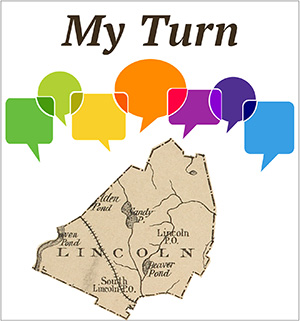By Ed Kern
I’ve been seeing lots of web ads lately for Clearview Energy touting “Save money on energy, we provide cheaper 100% green electricity.” As with much on the web, this is both true and misleading. Clearview’s product has two components: (1) actual electricity purchased from generators in New England and Canada and (2) Renewable Energy Credits (RECs), most likely bought from wind farms in west Texas where wind speeds are higher and open lands are abundant.
There is no way that Clearview can import electric power from Texas wind energy projects to Lincoln. Texas has 86 GW of generation capacity, but under 1 GW of transmission capacity for exporting power to states immediately to its east. The RECs sold by Clearview are not associated with New England generators providing “cheaper 100% green electricity.” This “cheap” green electricity is being generated and consumed in Texas and you are being asked to help pay for it.
The key to assuring your electricity is truly renewable is to buy RECs minted in your regional power pool. Massachusetts is in the New England Power Pool. Texas has its own — recently infamous — pool serving only Texas. Most power generated within a pool is consumed in the same pool, and that’s certainly the case in Texas.
In Massachusetts we are incrementally ratcheting up the percentage of green electricity all suppliers are required to provide (currently 18%). In Texas, a rather low goal was set 20 years ago and was exceeded threefold in about a third of the time allowed. Texas is not increasing its green requirements, so there is no Texas market for their excess RECs, which are now selling for under $0.002 per kWh; and being offered to you for about the price of a New England REC, now about $0.04 per kWh — higher priced because we are driving demand for RECs via the Commonwealth’s renewable requirement of 18% (and growing).
Lincoln’s Green Energy Choice (LGEC) program is buying these higher-priced RECs and is driving construction of renewable energy plants in New England — not buying Texas RECs cheap and selling them high to naive though well-meaning “green” consumers. These concepts can be confusing, and marketers are targeting communities transitioning to cleaner power such as Lincoln to sow confusion and make a fast buck with their “cheaper 100% green” claims.
Please don’t be fooled. Lincoln’s program is a good one and offers an affordable path to a greener future — and the best way to realize this goal is to “opt up” to the Lincoln 100% Green option. This month, Eversource Basic customers in Lincoln who did not opt out, as well as those who were already using a third-party supplier (about two-thirds of households in total) were automatically switched to the Lincoln Standard Green option, which provides an additional 27% renewable electricity from New England over and above the minimum amount required by state law, for a total of 45% clean, renewable electricity from New England. But we can do better by signing up for the Lincoln 100% Green option, which provides 100% clean, renewable electricity from New England.
The signups for Lincoln 100% Green have been going slower than I would’ve expected in Lincoln, — only about 5% of the town. My hope is that some residents may not yet have taken the time to learn and reflect on the proposition and its relatively modest marginal cost.
The Lincoln Green Energy Committee has set a goal of having 25% households “opt up” to the Lincoln 100% Green option in time for Town Meeting on May 15. It’s ambitious but attainable; the cost is modest but not “cheap.” Please consider “opting up” to 100%. You can easily do this by going to www.masspowerchoice.com/lincoln/enroll or calling 844-651-8919. (If you’re a customer of a third-party electricity supplier, you need to contact the supplier to terminate the relationship before signing up for the Lincoln Green Energy Choice program.)
Kern is a member of the Lincoln Green Energy Committee but is not speaking for the LGEC in this piece. He can be reached at edwardkern@gmail.com.
”My Turn” is a forum for readers to offer their views on any subject of interest to other Lincolnites. Submissions must be signed with the writer’s name and street address and sent via email to lincolnsquirrelnews@gmail.com. Items will be edited for punctuation, spelling, style, etc., and will be published at the discretion of the editor. Submissions containing personal attacks, errors of fact, or other inappropriate material will not be published.

Excellent discussion of this complex and important topic. We have ‘opted up’ to 100% and feel good about supporting the development of renewable energy in New England.